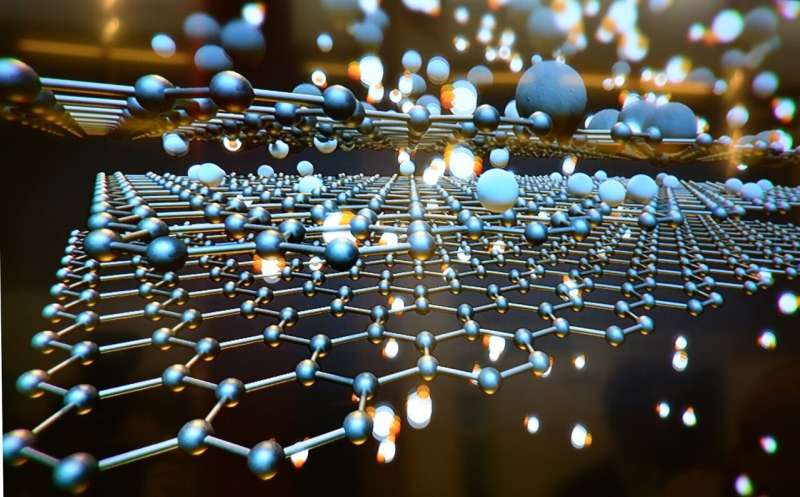New high-throughput device to unlock the potential of advanced materials

A Birmingham researcher has developed a new high-throughput device that produces libraries of nanomaterials using sustainable mechanochemical approaches.
Dr. Jason Stafford from the University’s School of Engineering invented the platform to create highly controllable reaction conditions and reduce the substantial amount of time researchers spend generating materials in the laboratory.
The benchtop device is a fully automated unit that can be programmed for parallel synthesis to produce a series of novel materials made in subtly different ways, so creating a library of advanced materials or product formulations for further testing and optimization.
Current techniques for synthesizing materials with extraordinary properties, such as 2D materials, either rely on a top-down approach that peels off layers of atoms (exfoliation) or a bottom-up approach that builds up a sheet by depositing one atom at a time.
Both these approaches involve a large number of steps and synthesis parameters and rely on thousands of precursors. This holds back R&D on new formulations using nanomaterials made from single elements (such as graphene), or compounds such as copper oxide, polymers, or crystals.
The device developed by Dr. Stafford uses mechanochemical synthesis, which accesses new materials and induces chemical reactions through mechanical forces, so reducing or eliminating the need for toxic solvents. It works with standard laboratory glassware or custom vessels and can be programmed to deliver different mechanical forces in each vessel, which may contain anything from a dilute liquid suspension to a dry solid powder.
Dr. Stafford expects the new method to interest R&D professionals working in chemical manufacturing and advanced materials design, drug discovery researchers, and laboratory-based researchers who want to develop new materials that they can translate directly into environmentally sustainable manufacturing processes.
He said, “There is a massive and ever-growing library of specialized 2D materials that have not reached mainstream applications, yet researchers are spending up to half of their time ensuring synthesis steps are performed repeatedly, and correctly. The automated platform can significantly reduce the time and expertise required in these processes and free up scientists to focus on the core aspects of their research in materials discovery.”
Dr. Stafford is an Associate Professor at the University of Birmingham, where he specializes in thermofluids, multiphase flows, and mechanochemical processing. He is a co-inventor on 20 patents and the main inventor on a patent application filed by the University of Birmingham Enterprise for the recently developed high throughput method for 2D and nanomaterial processing.
He will be at the Advanced Materials Show and ChemExpo2024 on May 15 and 16 at Birmingham’s National Exhibition Centre.
Provided by
University of Birmingham
Citation:
New high-throughput device to unlock the potential of advanced materials (2024, May 6)
retrieved 6 May 2024
from https://phys.org/news/2024-05-high-throughput-device-potential-advanced.html
This document is subject to copyright. Apart from any fair dealing for the purpose of private study or research, no
part may be reproduced without the written permission. The content is provided for information purposes only.

